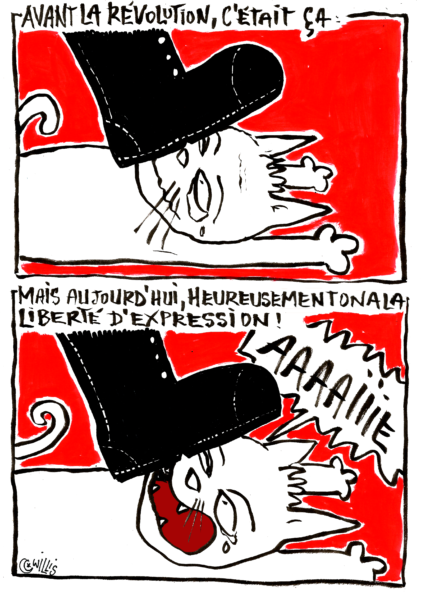
At a time when the country is in the grip of a disastrous economic and social situation, the publication of Decree-Law No. 2022-54 on the “fight against infringements relating to information and communication” on 16 September is a cause for concern.
Subsection 3 – Rumours and fake news
Art. 24 – Anyone who knowingly uses information and communication systems and networks to produce, spread, disseminate, send or write fake news, fake data, rumours, fake or falsified documents or documents falsely attributed to others with the aim of infringing the rights of others or prejudicing public safety or national defence or sowing terror among the population shall be punished by five years’ imprisonment and a fine of fifty thousand dinars.
Any person who uses information systems to publish or disseminate fake or falsified news or documents or information containing personal data, or attribution of unfounded data with the aim of defaming others, damaging their reputation, harming them financially or morally, inciting aggression against them or inciting hate speech, shall be liable to the same penalties as those set out in the first paragraph.
The penalties are doubled if the person targeted is a public official or similar.
(Non-official translation)
The text as it stands is causing concern among press freedom organisations, which see it as “a draconian law” and are demanding its withdrawal. Among the elements of concern is the very definition of “rumour” or “fake news”, which is absent from the text, while the disproportionate penalties are set out. According to Reporters Without Borders, “it lets room for the security services and prosecutors to interpret it as they see fit and the decree could be used to legitimise attacks on freedom of the press and the right to inform and to be informed. It could be used to criminalise journalism, challenge journalists’ right to the confidentiality of their sources and undermine many of the Tunisian state’s international commitments.” and will make it possible to prosecute anyone who commits an offence against Tunisian parties or interests.”
Cartoooning for Peace, whose members and collaborators include many Tunisian cartoonists, also expresses its concern about the future application of the text in a national context of increasing repression of the press. Considering the fight against disinformation and fake news to be essential, it recalls that experience has shown that the ambiguity and excessive application of texts aimed at fighting rumour and fake news has led to the conviction of many press cartoonists who expressed a critical opinion on the management of public affairs. As recommended by the academic Larbi Chouikha, quoted in Le Monde, the fight against false information and rumours should be based on “regulatory mechanisms, not repression”.
Cartoon from Willis from Tunis (Tunisia)
“Before the revolution, if was like this:
But now, thankfully, we have freedom of speech! AAAAIIIIE”